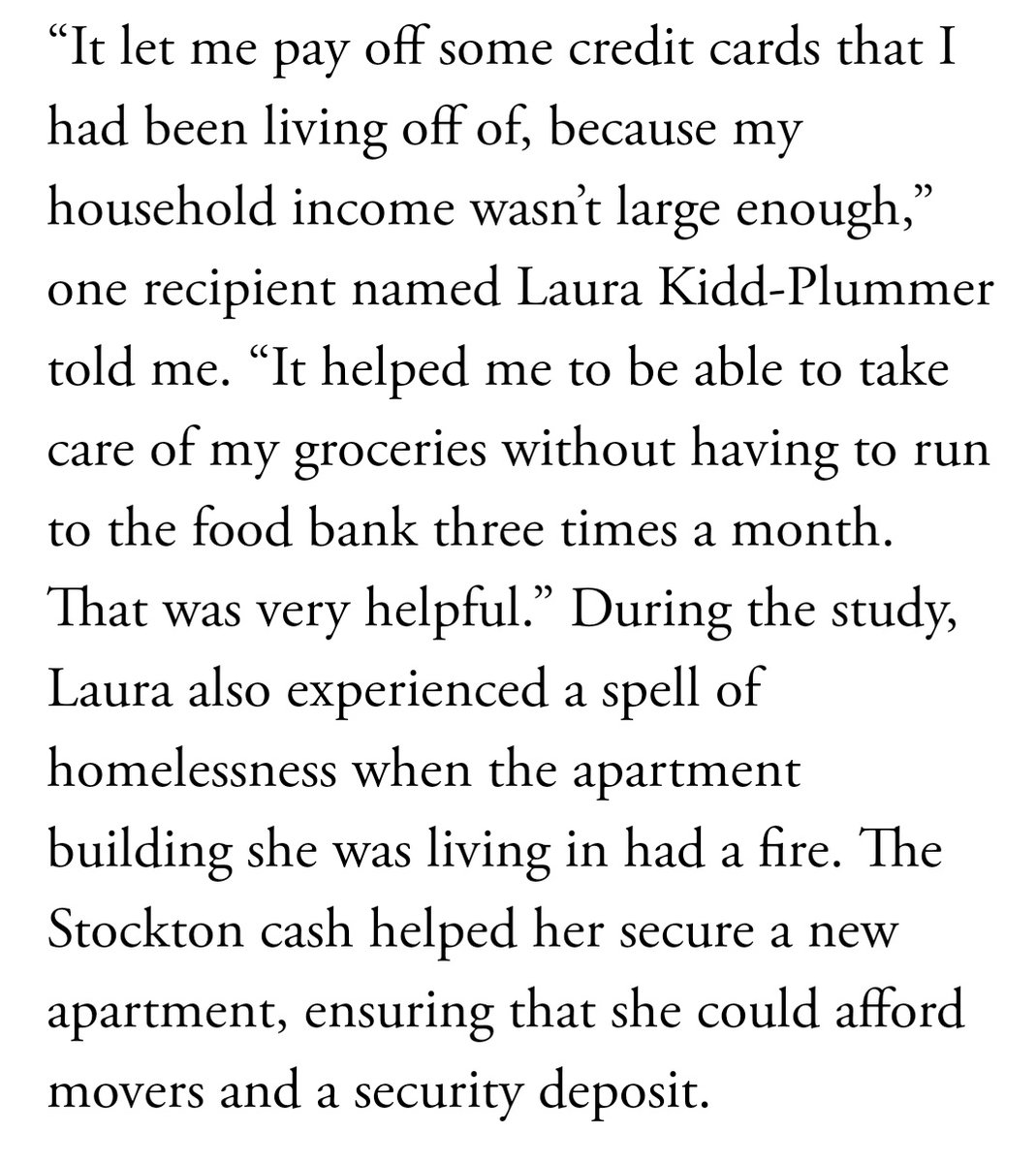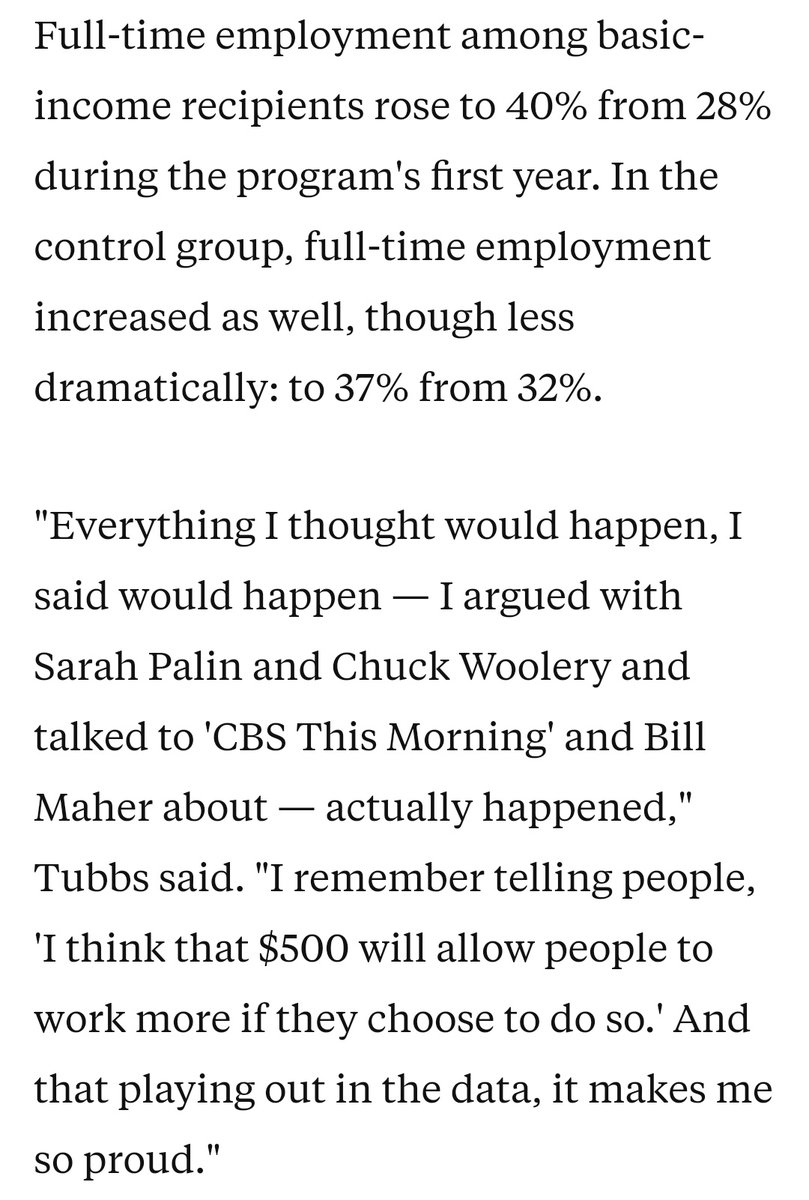
Some progressive guaranteed income supporters are making the claim that a targeted guaranteed income approach will reduce inequality more than universal basic income (UBI) because they want GI to exclude the rich. Here's why I think that's false and based on bad analysis.
THREAD
THREAD
Let's say you're a very wealthy GI supporter and you think GI should be means-tested in the same way the stimulus checks were so that you receive nothing. The total cost is seen as less than the cost of UBI, and your taxes go up $1 million a year. That indeed reduces inequality.
However, now consider a $20k/yr UBI that would be considered much more expensive than a $20k/yr GI. Do you think your taxes would go up by only $1.02 million? If so, you'd see the exact same loss of disposable income as a $20k GI design. But that's a very unrealistic assumption.
A more realistic assumption would be to assume that your taxes would go up by significantly more than $1.02 million, which would translate to an even greater inequality reduction.
It's counterintuitive, but progressives seem to be terrible at understanding this particular point.
It's counterintuitive, but progressives seem to be terrible at understanding this particular point.
Universal policies tend to reduce inequality more than targeted policies, because universal policies tend to be combined with higher taxes.
Here's a good blog on this point of universality vs targeting to understand better what I mean:
developmentpathways.co.uk/blog/who-reall…
Here's a good blog on this point of universality vs targeting to understand better what I mean:
developmentpathways.co.uk/blog/who-reall…

In the above chart, think of UBI as being portrayed in red and GI in blue. Yes the blue plan will reduce inequality. That's true. But UBI will reduce inequality to a much greater degree because despite the rich getting UBI, they pay far more in new taxes than they receive in UBI.
Yes, Jeff Bezos will get his $2k/mo in UBI or whatever the amount is. But his taxes are likely to go up far more to pay for that than if progressives insisted on a "cheaper" targeted approach. And that's not to mention all the people in need who will be excluded by means-testing. 

The universality of UBI is an integral element of what makes it such a powerful idea, and those whose goal it is to reduce inequality shouldn't be turned off by its universality, but should instead embrace UBI as being far more effective than means-testing at reducing inequality.
• • •
Missing some Tweet in this thread? You can try to
force a refresh













